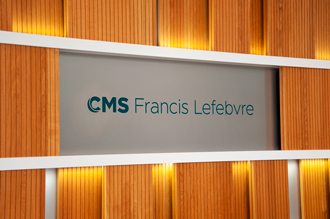Covid-19 continues to spread. In this context, the government has strengthened the measures necessary to protect public health.
While the employer has certain obligations to protect the health and safety of employees, employees also have similar obligations to protect themselves and their colleagues. Combating the spread of Covid-19 is everyone’s responsibility.
The employee’s safety obligation
Directive 89/391/EEC of 12 June 1989 on the introduction of measures to encourage improvements in the safety and health of workers at work led to the introduction into domestic law of a safety obligation for employees.
Pursuant to Article L.4122-1 of the French Labour Code, “in accordance with the instructions given to him/her by the employer, each worker must take care, according to his/her training and insofar as he/she is able, of his/her health and safety as well as that of other people affected by his/her actions or omissions at work.”
According to the Labour Ministry's Q&A of 19 March 2020, this imposes two sets of obligations on employees:
- they must comply with their employer’s instructions according to the company’s situation and their own situation;
- they must personally ensure their own safety and their colleagues’ safety by following health instructions given to them.
Employees are also advised to inform their employer if they have been in an at-risk area or a cluster area (i.e. an area containing at least two outbreaks of coronavirus at the same time and in the same place), so that preventive measures can be taken.
In the event of a breach of their security obligation, employees may be liable from a disciplinary perspective (see French Supreme Court, Social Law Chamber, 28 February 2002, no. 00-41220). It should be noted, however, that the employee’s liability being incurred does not exonerate the employer (French Supreme Court, Social Law Chamber, 10 February 2016, no. 14-24350).
Following the measures announced on 12 and 14 March by the President of the Republic and then by the Prime Minister, in a press release on 15 March 2020, the Labour Ministry issued further recommendations to protect public health.
Teleworking was made mandatory for all compatible positions
The Labour Ministry stated that it was mandatory for all employees who could telework (more than four out of every 10 jobs) to do so until further notice. The best way preventing the spread of Covid-19 is to limit physical contact as much as possible.
For positions not compatible with teleworking, the distancing rules must be strictly observed.
The Labour Ministry invited companies to review their organisation and, in particular, to:
- only hold meetings if strictly necessary: most can be organised remotely, others must be organised according to distancing rules;
- limit gatherings in confined spaces;
- non-essential journeys must be cancelled or postponed;
- the organisation of work must be adjusted whenever possible, for example by rotating teams.
The employer must ensure that employees who need to be present in their workplace are reminded of the following preventive measures:
- wash your hands very regularly;
- maintain a safe distance of at least a metre from other people who are coughing or sneezing;
- avoid touching your eyes, nose and mouth;
- follow rules on respiratory hygiene and ensure that those around you do the same;
- cough or sneeze into your elbow or into a tissue;
- greet without shaking hands and avoid kissing;
- use disposable tissues.
Management of company restaurants
In its press release on 15 March 2020, the Labour Ministry stated that corporate restaurants can remain open, but must be arranged to leave a distance of one metre between diners. Staggering of meals is recommended.
Can employees exercise their right of withdrawal?
Pursuant to Article L.4131-1 of the French Labour Code, all employees must “immediately alert the employer of any work situation if they have reasonable grounds to believe that it presents a serious and imminent danger to their life or health as well as any defect they identify in the protection systems.”
The danger is “serious” if it represents a threat to the life or health of the employee and is “imminent” if the risk can occur immediately or in the near future.
If the employer has implemented the provisions of the French Labour Code as well as the government recommendations, employees do not run any serious and imminent danger and therefore are not justified in exercising their right of withdrawal. If the employer has not implemented those provisions, on the other hand, employees may legitimate exercise their right of withdrawal.
Consequently, in view of the rapidity with which the coronavirus epidemic is evolving, it is recommended that employers frequently check the public authorities’ recommendations and implement all preventive measures recommended by the health authorities.
Report: impacts of Covid-19 (Coronavirus)
Our law firm offers you its legal assistance to address all the impacts of Covid-19 (Coronavirus) on your business. Read our dedicated report below.
For more information on our law firm:
Our law firm is a leading international business law firm. Its deep roots, unique positioning and highly recognised expertise enables it to deliver innovative, high value-added solutions in all areas of the law.











.jpg?v=1)


Social Media cookies collect information about you sharing information from our website via social media tools, or analytics to understand your browsing between social media tools or our Social Media campaigns and our own websites. We do this to optimise the mix of channels to provide you with our content. Details concerning the tools in use are in our privacy policy.